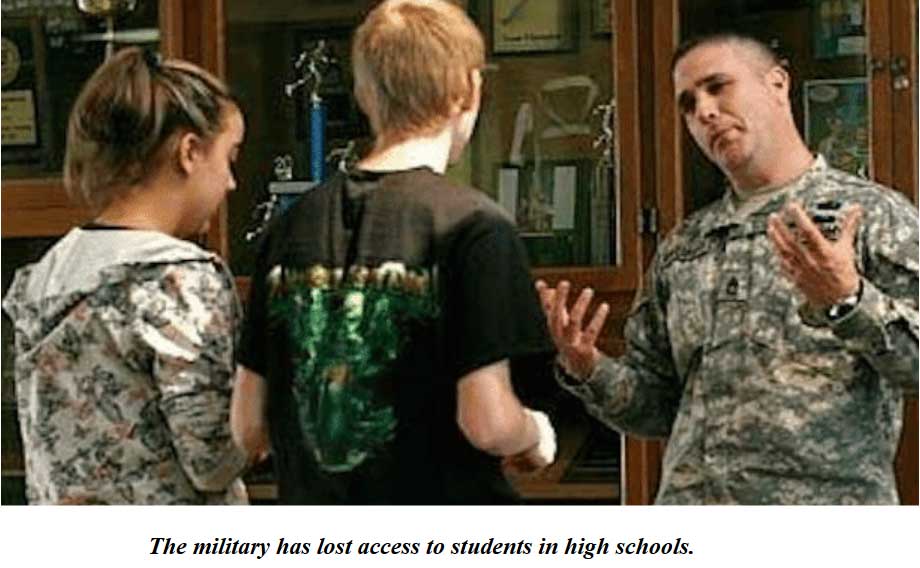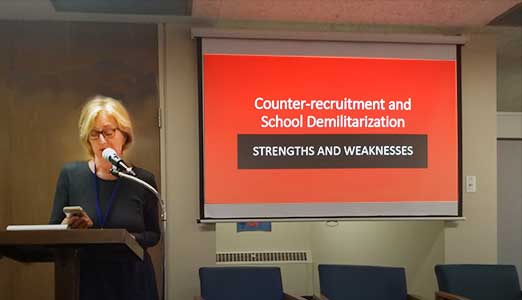Cómo COVID-19 está afectando el Programa de Entrada Retrasada y amenazando la salud de los reclutas.
Por Pat Elder / Red nacional de oposición a la militarización de la juventud, NNOMY - 8 de junio de 2020
- Read the English Version
 COVID-19 ha impactado profundamente la forma en que los militares encuentran nuevos soldados. El comando de reclutamiento fue atrapado sin preparación para enfrentar la pandemia y se enfrenta a una nueva realidad desafiante.
COVID-19 ha impactado profundamente la forma en que los militares encuentran nuevos soldados. El comando de reclutamiento fue atrapado sin preparación para enfrentar la pandemia y se enfrenta a una nueva realidad desafiante.
El reclutamiento militar es una búsqueda psicológica intensa que tradicionalmente se ha basado en la capacidad de los reclutadores para desarrollar relaciones cercanas con los adolescentes. Estas relaciones se cultivaron en las escuelas secundarias de la nación, donde los reclutadores tenían acceso a los niños. Los reclutadores sirvieron como entrenadores y tutores. Trajeron donas a la facultad. Almorzaron con perspectivas, a veces cien veces en un solo año escolar. Los reclutadores militares jugaron baloncesto uno a uno después de la escuela con reclutas potenciales y se hicieron mejores amigos con algunos niños. Tan amigable, cientos de reclutadores masculinos han sido implicados en relaciones sexuales inapropiadas con niñas menores de edad.
Las escuelas secundarias eran el centro del universo de reclutamiento, pero eso terminó abruptamente en marzo cuando se rompió la tubería de alistamiento. Los reclutadores alistaron a personas de la tercera edad y los colocaron en el Programa de Ingreso Retrasado (DEP) en el cual el ingreso de un estudiante al servicio activo se pospone por hasta 365 días. (El Ejército ahora lo llama el Programa del Futuro Soldado). El objetivo del programa DEP es mantener la motivación del futuro soldado mientras


 COVID-19 has profoundly impacted the way the military finds new soldiers. The recruiting command was caught unprepared to face the pandemic and is facing a challenging new reality.
COVID-19 has profoundly impacted the way the military finds new soldiers. The recruiting command was caught unprepared to face the pandemic and is facing a challenging new reality. 





